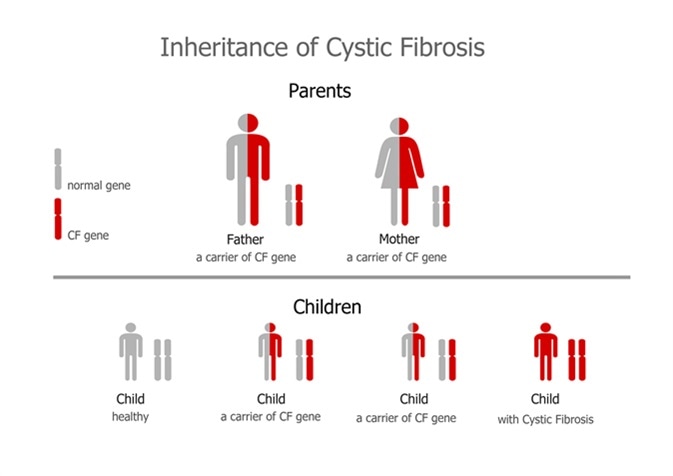Adults with cystic fibrosis experience health problems affecting the respiratory digestive and reproductive systems. Learn about cystic fibrosis a genetic disorder that affects the lungs pancreas and other organs and how to treat and live with this chronic disease.
/cystic-fibrosis-symptoms-5b290ad73037130036845813.png) Cystic Fibrosis Signs Symptoms And Complications
Cystic Fibrosis Signs Symptoms And Complications
Cystic fibrosis affects both males and females and it affects people from all racial and ethnic groups.

Who is affected by cystic fibrosis. This unusually thick mucus interferes with the normal functioning of certain body systems. About 30000 people in the United States have cystic fibrosis. The disease affects about 1 in.
Cystic fibrosis affects various organ systems in children and young adults including the respiratory system digestive system and reproductive system. About 30000 people in the United States have cystic fibrosis. Cystic fibrosis CF is a genetic disorder that causes mucus to build up and damage organs in the body particularly the lungs and pancreas.
Blocks airways and leads to lung damage. It causes changes in the electrolyte transport system. Most men with cystic fibrosis have congenital bilateral absence of the vas deferens CBAVD a condition in which the tubes that carry sperm the vas deferens are blocked by mucus and do not develop properly.
Symptoms of cystic fibrosis. People with CF have problems with the glands that make sweat and mucus. Cystic fibrosis CF is a genetic condition that affects a protein in the body.
Cystic fibrosis CF is an inherited life-threatening disease that affects many organs. The idea behind the study comes from a. The most affected group is Caucasians of northern European ancestry.
It is inverted and it causes damage to the lungs. These symptoms include poor lung function frequent and persistent lung infections and the inability to effectively digest food particularly fats. CF affects about 35000 people in the United States.
CF may also affect the ears nose and sinuses sex organs and the bones and joints. The bodys cells then absorb too much sodium and water. While primarily affecting the lungs it can also impact the digestive system including the pancreas liver intestines and kidneys.
Cystic fibrosis is a rare disease. Cystic fibrosis is as varied as the people who have it - each individuals genotype genetic make-up will dictate the symptoms that they experience and how much they will be affected by them. Cystic Fibrosis CF affects the exocrine glands which are organs that secrete mucus.
People with CF have mucus that is too thick and sticky which. Role of Genetics in CF CF is a rare genetic disease found in about 30000 people in the US. Cystic fibrosis is an inherited disease characterized by an abnormality in the glands that produce sweat and mucus.
Cystic fibrosis CF is a genetic disorder that causes problems with breathing and digestion. Traps germs and makes infections more likely. The parts of the body most affected by cystic fibrosis are the sweat glands respiratory system digestive system and reproductive system.
Mucus is normally slippery and protects the linings of the airways digestive tract and other organs and tissues. However it is most common among Caucasians whose ancestors came from northern Europe. Cystic Fibrosis and Who It Affects.
Cystic fibrosis CF is a genetically inherited disease that causes persistent lung infections and makes it difficult to breathe. Affected individuals are susceptible to frequent infections eventually leading to. It affects 1 in 3000 Caucasian babies in the United States.
In humans cystic fibrosis is an inherited disease due to an autosomal recessive gene located on chromosome 7. Cystic fibrosis is a genetic dysfunction that affects mostly the lungs pancreas liver kidneys and intestine long-term issues include difficulty a result of frequent lung infections. People who have cystic fibrosis have a faulty protein that affects the bodys cells tissues and the glands that make mucus and sweat.
People with cystic fibrosis CF generally are living longer and healthier lives than in the recent past. Now researchers will conduct a five-year study to look into ways to further increase and improve the lifespan of people with the disease.
